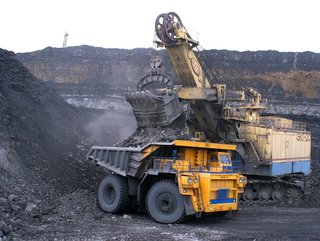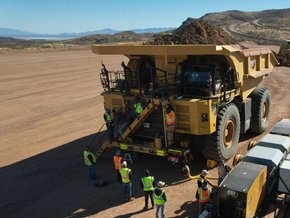Women under-represented on mining boards

The Pipeline, the market-leading business championing executive women, this morning publishes its 8th annual Women Count report into gender parity on executive committees in the FTSE350. The report reveals that businesses in the mining sector have no more than 20% female representation on their executive committees. This compares to sectors such as transport, health and electricity which report at least 40% female representation, and places the mining sector as one of the worst performing in terms of gender parity.
Missing out on stepping stones
More generally, it appears that rather than holding the most influential executive roles, such as CEO, or positions with P&L responsibilities, women were largely limited to ‘functional’ roles, such as HR or Marketing. As a result, they were more likely to miss out on positions that are typically stepping stones to a CEO appointment.
Therefore, while female representation on the board of FTSE350 companies exceeded 30% for the first time, the Women Count report also found that only 13% of the FTSE100 have a female Chief Executive Officer, just 9% of companies have a female CEO, up from 4% in 2019, and 18% of the FTSE350 have a female Chief Financial Officer - despite women comprising nearly half of those qualifying as accountants
Gender representation
The Pipeline’s research also highlights sizeable discrepancies in gender representation on senior teams across different sectors within the FTSE350. While some sectors have achieved over 40% female representation on their executive committees– with notable performers including transport, health and insurance – several other sectors, such as mining, IT, automobile, and private equity, appear to be significantly behind the curve, with female representation on the board standing at under 20%. Disappointingly, both the Private Equity businesses included in the report had no women executive committee members.
For the first time, this year the research was extended to include a survey of senior women to understand the challenges they face in their careers and gain their perspective on why women continue to be a minority on the boards of business organisations. This analysis revealed that:
- 47% of respondents identified workplace environment and culture-related issues as the biggest obstacle to their development in leadership roles
- 44% believed their organisation was not putting enough emphasis on supporting women in achieving their career goals
- 48% highlighted flexibility and career advancement as the most important decisions made by leadership teams to enable women to breakthrough
Professor Geeta Nargund, Founder and CEO of CREATE Fertility said: “If companies are to improve their gender parity, they must remove barriers to success such as the ‘woman tax.’ This means they should stop allocating additional tasks for women to perform alongside their day-jobs without placing the same expectation on their male peers. An awareness of potential blind spots such as these will help build a fairer workplace culture.”
Sue O’Brien OBE, Chair of The Pipeline, said: “The glacial rate of progress towards gender parity demonstrated in our report is a serious cause for concern. Businesses must not shy away from some of these uncomfortable truths. Leaders need to examine their workplace culture and ensure that their promotion procedures are truly equitable as well as being merit-based. Taking care of, developing and investing in the workforce you already have is a priority.”
Margaret Edge, Programme Director at The Pipeline, said: “The glass ceiling is far from being smashed: this year’s count demonstrated that it may be cracked, but it’s still firmly in place in the majority of organisations. Respondents to our survey highlighted the need for businesses to continue to invest in leadership development to ensure women succeed at the highest level. We are calling on business to set itself measurable targets on gender parity in P&L and executive leadership roles just as they have on boards.






